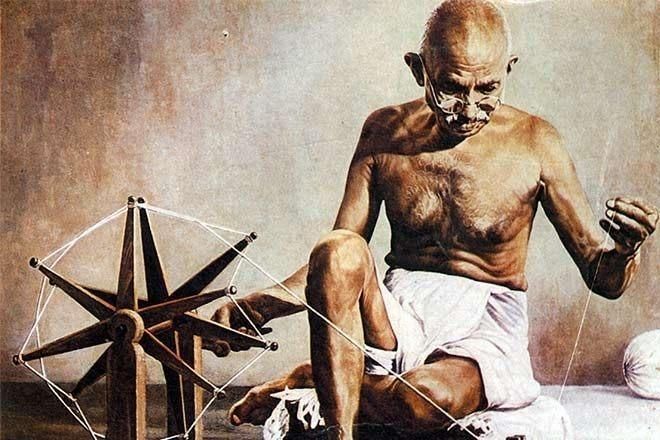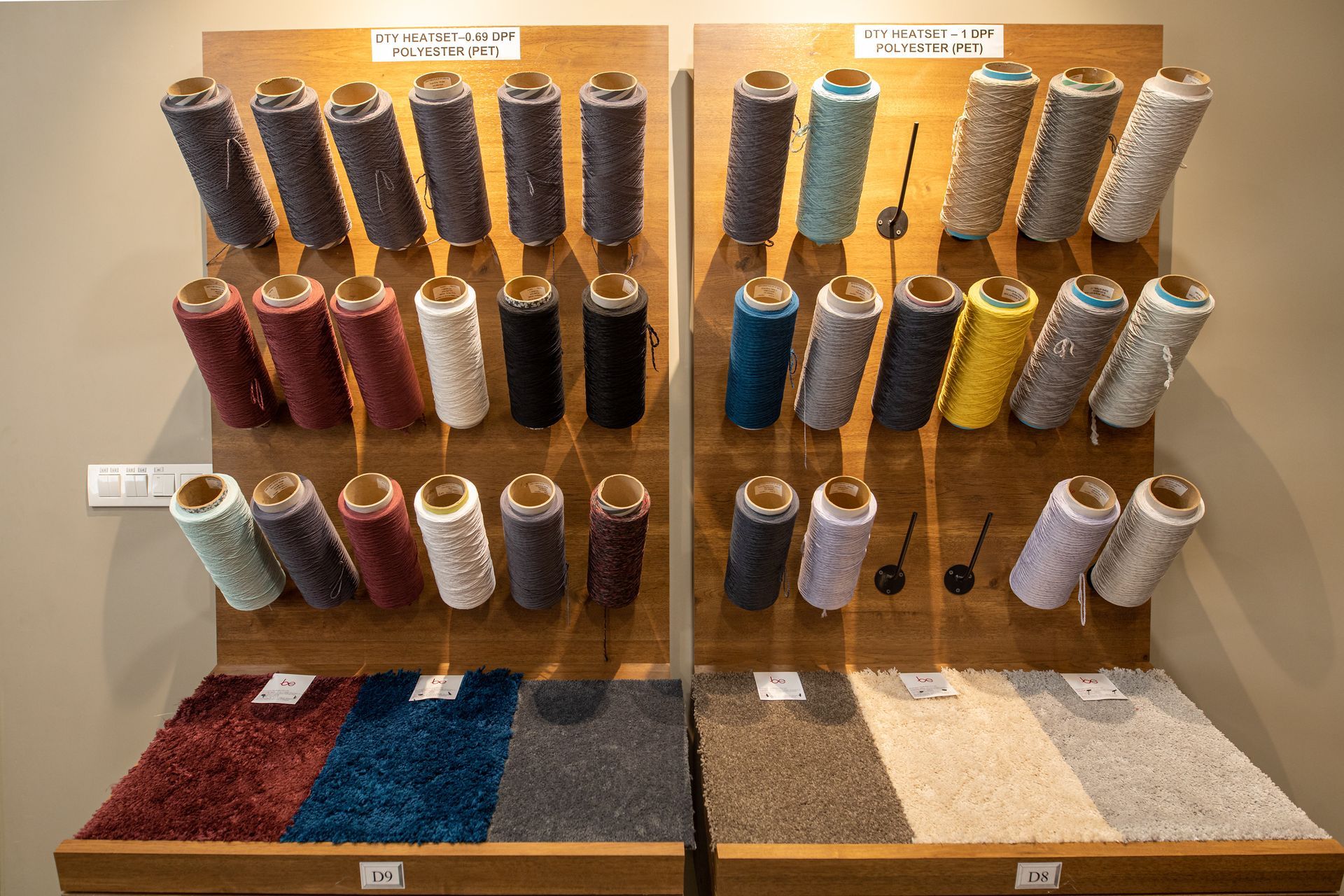Mahatma Gandhi and his Impact on Indian Textiles: A Legacy Woven in Khadi
Mahatma Gandhi, fondly known as the Father of the Nation, was not only a symbol of India's struggle for freedom but also a champion of self-sufficiency, non-violence, and sustainability. His profound impact on Indian textiles, particularly through his advocacy of Khadi, is a testament to his visionary leadership and commitment to empowering the masses.

1. The Khadi Revolution:
At the heart of Gandhi's textile legacy lies the Khadi revolution. Khadi, a simple handspun and handwoven fabric, became the symbol of Gandhi's vision for a self-reliant and independent India. He believed that Khadi was not just a fabric but a means to connect the people of India to their roots, to the rural villages, and to the dignity of labor.
Gandhi himself was a devoted spinner, often pictured with a Charkha, the traditional spinning wheel. Through his actions, he encouraged millions of Indians to spin their own Khadi cloth, promoting economic self-sufficiency and empowering rural communities. The Khadi movement was not just a clothing choice but a powerful political and economic statement.
2. The Simplicity of Dress:
Gandhi's attire, consisting of a loincloth and a shawl made of Khadi, was more than just a clothing preference; it was a symbol of simplicity and humility. By wearing clothes spun and woven by his fellow countrymen, Gandhi set an example of living in harmony with one's environment and supporting local industries.
This choice of attire resonated deeply with the masses, as it was not only affordable but also a reflection of the principles of self-reliance and self-respect. Gandhi's simplicity in dress was an embodiment of his philosophy of living with minimal material possessions and emphasizing inner qualities over external appearances.
3. The Preservation of Handicrafts:
Gandhi was not just a proponent of Khadi but also a staunch advocate for the preservation of India's rich tradition of handicrafts. He recognized that India's rural economy thrived on these time-honored crafts, and their decline threatened the livelihoods of millions. To address this, he encouraged the revival of traditional weaving techniques and the support of rural artisans.
Under his guidance, various Khadi and village industries were established to empower artisans and promote their crafts. This not only rejuvenated the handicraft sector but also contributed to the economic upliftment of rural India.
4. Legacy of Sustainability:
Gandhi's impact on Indian textiles transcends his lifetime. His emphasis on sustainability, eco-friendliness, and ethical production methods in textiles was far ahead of his time. Today, as the world grapples with environmental challenges, his principles find renewed relevance.
The Khadi movement, with its focus on handspun and handwoven fabrics, represents a sustainable alternative to mass-produced textiles. It champions the use of natural fibers, minimal energy consumption, and support for local communities. These principles align with modern notions of ethical fashion and sustainability.
In conclusion, Mahatma Gandhi's influence on Indian textiles is indelible. His promotion of Khadi, simplicity in dress, support for handicrafts, and commitment to sustainability have left an enduring legacy. The Khadi movement continues to inspire both the textile industry and individuals to make responsible choices that honor India's heritage and contribute to a more sustainable future.
As we celebrate Gandhi Jayanti, let us remember and celebrate the man who not only spun yarns of revolution but also wove together the fabric of a nation's identity.
Today, at Beekaylon, as a yarn manufacturing company, we honor Gandhi's legacy by supporting the preservation of Indian textile heritage. Join us in celebrating the man who spun a yarn of change for our nation.



